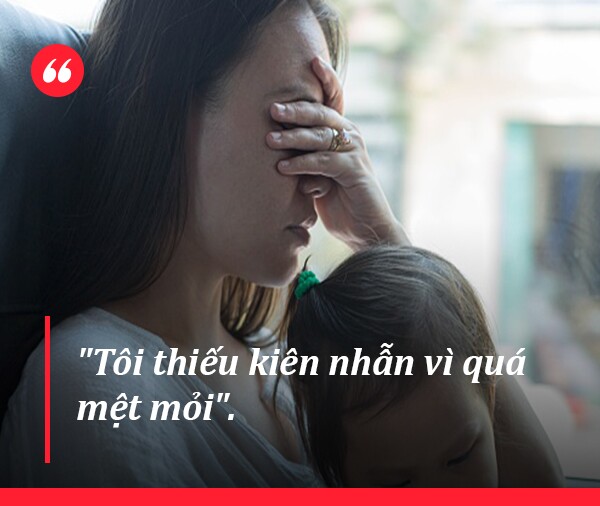Parenting is indeed a wonderful journey, where both parents and children can learn and grow together. It is a journey filled with joy, love, and unique challenges that shape and strengthen the family bond.
However, there are times when parents may find themselves losing patience with their little ones. It is during these moments that moms, in particular, can benefit from reminding themselves of three powerful phrases that can help restore calm and perspective.

**”I’m losing patience because I’m not understanding my child.”**
A story circulated on Chinese social media illustrates this point perfectly. A mother took her three-year-old son to a party, thinking he would enjoy the lively atmosphere. However, the child’s reaction was the opposite of what she expected. He seemed scared and wanted to leave.
The mother couldn’t understand why her son, who usually loved to play and have fun, would reject such a wonderful setting. Despite her attempts to comfort him, he insisted on going home, even sitting down on the floor and crying, taking off his shoes. In her mind, the party was a fantastic experience—great food, new friends, and cheerful music. But for the child, it was a completely different world.

Finally, the mother lost her patience and scolded her son. Seeing him bow his head, she sighed, crouched down, and put his shoes back on. In that moment, she realized what her child had been wanting. From a child’s perspective, the loud noises, bright lights, and strangers could be overwhelming and confusing.
Sometimes, parents may perceive their children’s discomfort as something trivial or unrelated to their needs. We may not understand why they cry frequently, why they need to be held in unfamiliar settings, or why they suddenly become obsessed with certain things. These emotions are not acts of rebellion but natural reactions as they navigate and adjust to their surroundings.
Our impatience often stems from not recognizing their needs. Children crave attention, a sense of security, and connection. When we fail to address these needs, it can lead to negative reactions and behaviors that hurt both parties.
So, when you find yourself losing patience, pause for a moment. Take a deep breath and ask yourself: *”What is my child feeling? What do they need right now?”* If you can view the situation from their perspective, you’ll gain insight into their behaviors and realize that love, care, and understanding can resolve most issues.

**”I’m losing patience because I’m tired.”**
Our mood and level of patience are closely linked. When we feel joyful and content, we tend to be more tolerant and compassionate towards our children. On the other hand, when we’re exhausted or stressed, our patience wears thin.
Consider a scenario where your child wants you to tell them a story, but you’re feeling overwhelmed or stressed. Your initial reaction might be, *”Don’t bother me now; I’m busy.”* However, if you were in a better state of mind, you’d likely think, *”My child wants to learn, and that’s wonderful,”* and happily oblige.
When we, as adults, struggle to manage our negative emotions, we risk lashing out at our little ones. Fatigue, stress, and life’s burdens can make it challenging to maintain our composure. As author Philippa Perry wisely stated, *”We all do this. We have to let out the sadness in our hearts before we can let out the love in our hearts.”*

There’s a saying that goes, *”I’m not bad-tempered; I’m just tired.”* The more exhausted we are, the harder it is to control our reactions to our children. Many parents have experienced that moment of guilt after scolding their child, realizing that their reaction was excessive.
It’s essential to be mindful of these moments and give yourself a break. Accept and comfort yourself, and then extend that same compassion to your child. Learning to control our emotions and reactions is a skill that takes time and practice.

**”My patience is a gift to my child.”**
When parents lose patience, it can unintentionally make children question themselves. Thoughts like *”Am I bothering my parents?”* or *”Maybe I’m not good enough,”* or *”I don’t deserve my mother’s attention”* can creep into their minds. These feelings of self-doubt can leave children feeling lonely and create barriers to building self-confidence.
Children are highly sensitive to their parents’ moods and reactions. When they sense rejection or impatience, it leaves a lasting impression and can impact their self-worth.
Psychologist Fairbairn noted that when children are treated poorly, they tend to blame themselves to maintain the idea that their parents are good. This internalized blame can make them feel unworthy of love and affection.

Within the family unit, children first learn caution and observation. They closely monitor their parents’ reactions and strive to please them, fearing that any misstep will result in the withdrawal of love and attention.
So, when you feel that spark of impatience, remember: *”My patience is a gift to my child.”* Patience and love are the most precious gifts you can give. They form the foundation for your child’s self-confidence and set the stage for healthy relationships in the future.
Love soothes the heart. When children feel loved and accepted, they develop a strong sense of self-worth and learn that they are deserving of love and capable of expressing themselves authentically.




































